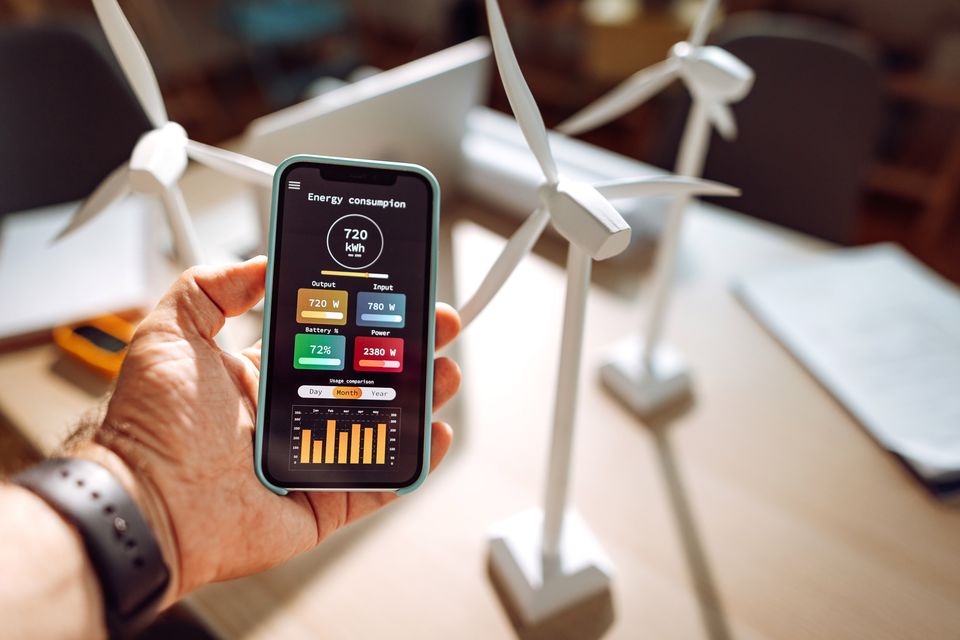Business
Smart Metering Gains Traction as Enterprise Ireland Offers Support

In a significant move towards enhancing sustainability, Enterprise Ireland is now offering financial support for manufacturers seeking to implement smart metering systems. This initiative aims to help businesses monitor and manage their energy and water consumption more effectively, thereby reducing operational costs and promoting environmental responsibility.
The push for smart metering aligns with a broader trend, where sustainability has become essential for companies of all sizes. Smart meters provide real-time data, enabling businesses to track their resource usage throughout the day. With this clarity, organizations can identify inefficiencies, detect unusual consumption patterns, and implement targeted interventions that could lead to savings of between 5 percent and 15 percent in their utility expenses.
Enterprise Ireland’s Financial Support
To facilitate this transition, Enterprise Ireland’s capital investment grant for energy monitoring and tracking (EM&T) systems covers up to 50 percent of eligible costs. This includes expenses for meters related to electricity, gas, diesel, oil, water, and steam, as well as installation and commissioning services. The funding is accessible for projects ranging from €10,000 to €100,000, making it feasible for both small and large enterprises to invest in smart metering technologies.
Further assistance is available through Enterprise Ireland’s climate action voucher and greenstart grant. These programs are designed to help businesses create a metering roadmap, perform gap analyses, and effectively interpret their data. The overarching goal is to empower companies to proactively manage their energy and water consumption rather than merely reacting to their usage patterns.
Real-World Impact of Smart Metering
Recent case studies showcased during an Enterprise Ireland webinar illustrate the tangible benefits of smart metering in various businesses. Caroline Sugrue from DCS Group emphasized how real-time data has allowed her company to take targeted actions and optimize renewable energy systems, such as solar photovoltaic panels and heat pumps.
At Lee Strand Co-Op Creamery, operations manager John Murphy reported an impressive 12 percent reduction in electricity usage by installing submeters and making minor operational adjustments, all without requiring additional capital investment. Another example comes from Donal Budds of FreeFoam Building Products, who shared that by metering individual machines and subsystems, they achieved a 10 percent energy saving by switching to low-energy vacuum systems. This initiative has fostered a culture of energy savings within the company, positioning FreeFoam to meet increasing customer demands for reduced carbon footprints.
As businesses face mounting pressure to demonstrate environmental responsibility, the implementation of smart meters provides a foundational element for accurate carbon accounting. This capability supports life cycle assessments and product carbon footprint labeling, making robust data an essential aspect of meeting evolving customer expectations.
For more information about the support available, interested parties can visit enterprise-ireland.com/en/supports/become-more-sustainable. With the focus on sustainability intensifying, the integration of smart metering represents not just a technological upgrade, but a crucial step towards a more sustainable future for businesses.
-

 Top Stories3 months ago
Top Stories3 months agoTributes Surge for 9-Year-Old Leon Briody After Cancer Battle
-

 Entertainment4 months ago
Entertainment4 months agoAimee Osbourne Joins Family for Emotional Tribute to Ozzy
-

 Politics4 months ago
Politics4 months agoDanny Healy-Rae Considers Complaint After Altercation with Garda
-

 Top Stories4 months ago
Top Stories4 months agoIreland Enjoys Summer Heat as Hurricane Erin Approaches Atlantic
-

 World5 months ago
World5 months agoHawaii Commemorates 80 Years Since Hiroshima Bombing with Ceremony
-

 Top Stories3 months ago
Top Stories3 months agoNewcastle West Woman Patricia Foley Found Safe After Urgent Search
-

 Top Stories5 months ago
Top Stories5 months agoFianna Fáil TDs Urgently Consider Maire Geoghegan-Quinn for Presidency
-

 World5 months ago
World5 months agoCouple Convicted of Murdering Two-Year-Old Grandson in Wales
-

 World5 months ago
World5 months agoGaza Aid Distribution Tragedy: 20 Killed Amid Ongoing Violence
-

 World5 months ago
World5 months agoAristocrat Constance Marten and Partner Convicted of Infant Murder
-

 Top Stories4 months ago
Top Stories4 months agoClimbing Errigal: A Must-Do Summer Adventure in Donegal
-

 Top Stories4 months ago
Top Stories4 months agoHike Donegal’s Errigal Mountain NOW for Unforgettable Summer Views









